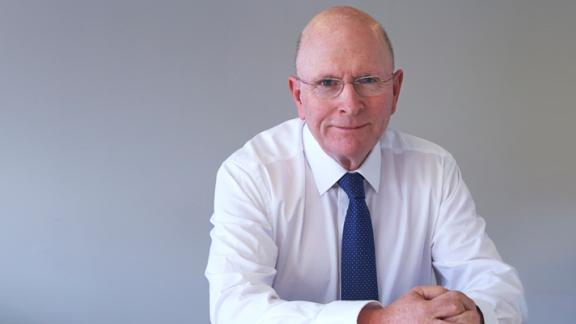A perfect storm?

The pensions' crisis also remains, although temporarily alleviated by Simon Stevens' intervention. Niall Dickson, chief executive of the NHS Confederation, updates us on these issues within the NHS.
Some of you will doubtless have received the summons to meet NHS England and Improvement leaders shortly after the election. There is understandable nervousness at every level of the service about the pressure on the front line and the impact on both patients and staff. The reality though is that there is better planning than ever and a real commitment from across the service to meet patient needs.
But as everyone knows, the relentless rise in demand and the shortages in front line staff across health and social care are in danger of creating the perfect storm.
The extent of bad weather, norovirus, and flu infection may make the situation better or worse, but no amount of promises from politicians, or indeed exhortation from the centre, will change the reality on the front line.
One glimmer of hope has emerged. The intervention in the pensions’ debacle by Simon Stevens last week is good news, even if no one is pretending that it is other than a stop gap which can do no more than take us through the next few months.
My deputy, Danny Mortimer, who heads the NHS Employers part of the Confederation, has just written to HR directors with the latest detail on this and provided advice on implementation.
If this plan works, and trusts can avoid losing capacity as we head into what most health leaders fear will be the toughest winter on record, this somewhat convoluted proposal has to be welcome.
We should not be penalising senior clinical staff for taking on extra work and in our survey of NHS leaders ahead of the election, more than four in five agreed that the current pension tax system and the way it interacts with the NHS Pension Scheme is having a detrimental impact on the workforce. Nearly 70 per cent said it was damaging patient care.
The NHS England and Improvement answer, hastily despatched to the Secretary of State for approval in spite of the pre-election restrictions, means that the NHS will meet the cost of annual allowance tax bills incurred by doctors, relating to earnings and pension benefits accrued during the 2019/20 financial year.
It involves using the existing ‘scheme pays’ option, which allows members to ask the NHS Pension Scheme to pay their annual allowance tax charge to HMRC on their behalf. Normally, in return, the member’s benefits in retirement would be reduced by a corresponding amount, but under this arrangement, the NHS at the centre will make an additional payment equivalent to top up the reduced pension benefits before retirement.
It is a ‘this-year-only’ intervention, although there will be ramifications by having to compensate doctors with additional payments as they retire years from now.
Once the election is over, we need a long-term solution and we need it before the next financial year. Unsurprisingly, the main parties have pledged to address the issue in their manifestos – we will hold the next government to account and make sure this happens.
In the summer, we called on the Chancellor to scrap the tapered annual allowance – and we wrote to him in November to reiterate this. We believe this remains the most straightforward response, and it should be possible for the Treasury to raise at least some of the lost revenue in other fairer ways. Above all, we want to make sure that senior clinical staff can provide additional activity for NHS patients knowing that any income they earn will not result in a reduced pension or a pension tax bill.
We also urged the Chancellor to consider a simple change to the tax rules whereby any NHS payments to clinical staff in excess of a full-time contract would be excluded from consideration in the application of the taper.
These payments would be non-pensionable and would of course be subject to tax and national insurance contributions in the usual way.
In our leaders’ survey, more than three-quarters backed scrapping the taper and nearly three in five agreed excluding payments to clinical staff in excess of a full-time contract from the taper would make a difference.
Three-quarters thought the flexibilities should be extended to all NHS staff, and not just medical consultants.
Again, little surprise, but the number one priority for leaders in our survey was workforce. Nine in ten told us that understaffing was putting patient safety at risk. This was the major concern for leaders across the NHS, ahead of social care and capital investment.
Regardless of any other election pledges for the NHS, no matter what extra investment lands in the NHS’s coffers as a result, or whoever’s going to be paying for hospital parking, how we attract and retain the staff to deliver NHS and social care needs to be the top priority for all of us, including the next government. To borrow Bill Clinton’s aphorism... it’s the workforce stupid!
Niall Dickson is chief executive of the NHS Confederation. You can follow him on Twitter @NHSC_Niall



